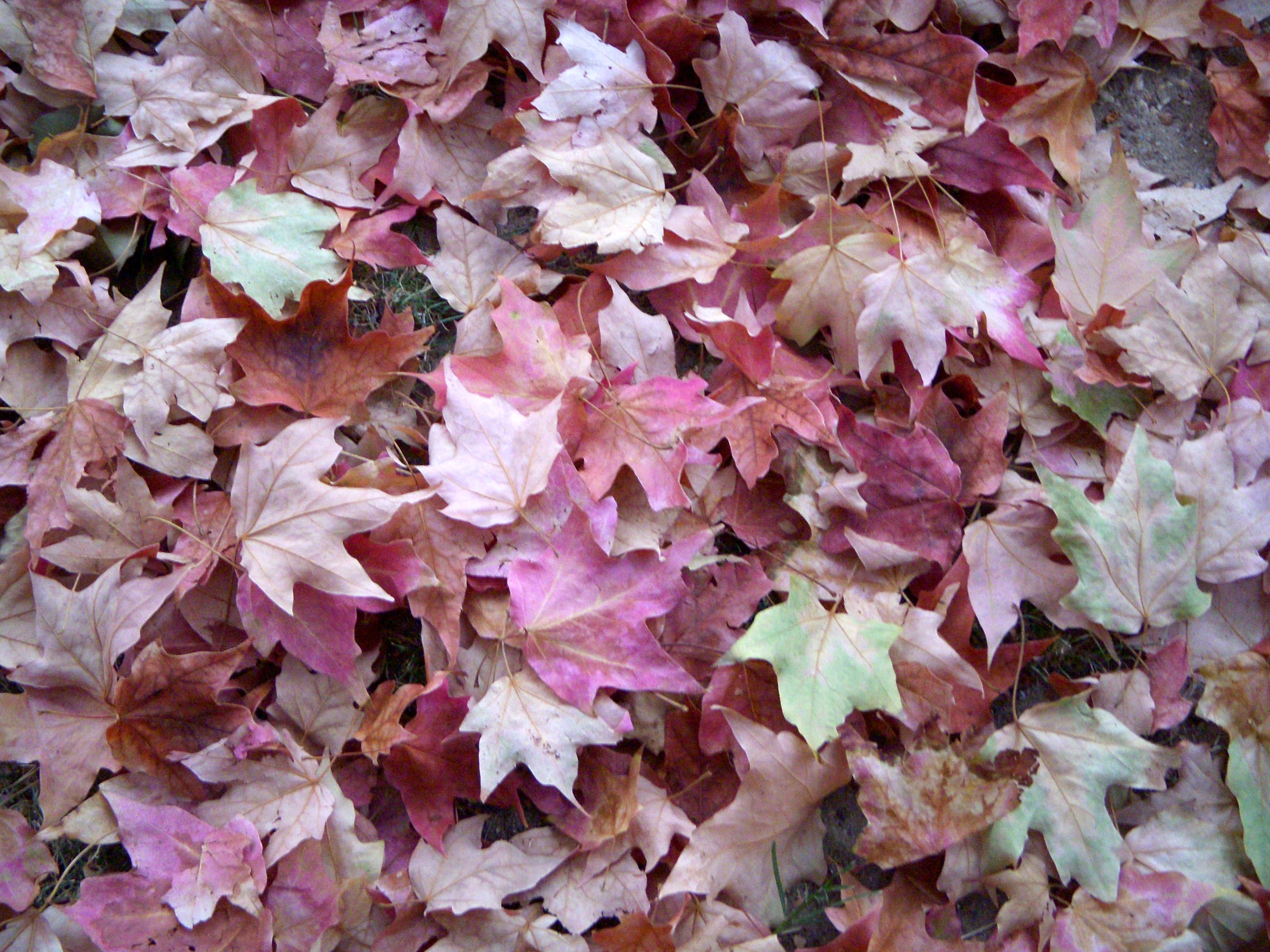Compost at it’s simplest is decayed organic matter, known to gardeners as “Black Gold”. It makes a wonderful fertilizer and can be made from things you’d normally throw away. Starting your own compost pile may sound intimidating, but it’s really very simple!
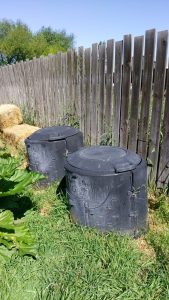
Compost bins in the Garden
There are many compost bins and containers for sale, but they can be expensive. If you’re looking for a do-it-yourself option, you’ll find it’s not complicated to make your own. It can be as simple as taking a 32-gallon plastic garbage can with a lid, and drilling lots of holes in the sides, lid and bottom. Use a large drill bit so plenty of air can circulate. Start off your compost by filling the can about 1/3 full with straw, grass, and leaves, spray with a little water, then add kitchen waste.
Secure the lid with bungee cords, then every once and a while just tip the can over and roll it around in your yard for a while to mix the compost. This can be a fun job for kids! See how easy it is?
You only need four ingredients to make successful compost: air, water, brown material and green material. Green materials are nitrogen-rich, and brown materials are carbon-based. Here’s a quick explanation of each ingredient:
Air: Every couple of weeks or so you should aerate the pile by turning it with a shovel or pitchfork. Or if you’re using the garbage can method, roll it around. This lets air into the material so the microbes that break it all down can have oxygen to do their job. If there’s not enough air, the pile will start to smell bad.
Water: The pile should be kept moist, but not wet. It should be as damp as a wrung-out sponge. If you don’t get enough rain, just give it a spray with the hose now and then. Just don’t let it get soggy! If it’s not wet enough, it will take much longer to break down into compost.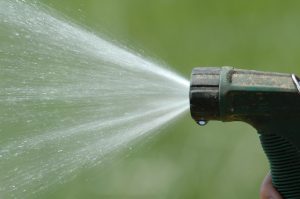
Green Materials (Nitrogen): grass clippings, eggshells, feathers, tea bags, coffee grounds, fruit and veggie scraps. If your compost is damp and smells sweet but isn’t producing heat, you’ll need to work in more green stuff.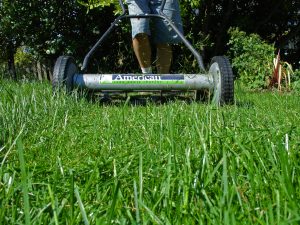
Brown Materials (Carbon):Â dry leaves, wood chips, shredded paper, sawdust, cardboard, straw, and hay.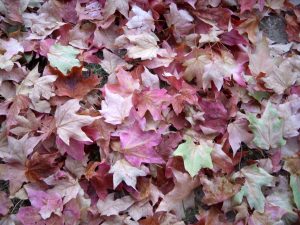
With the right combination, your compost pile will get hot inside as those microbes work on decomposing the organic matter. This results in finished compost within 1-3 months. If you don’t get it right, that’s ok! It will all still break down in 6-12 months. So what is the right combination? A ratio of 2 parts brown to 1 part green material seems to be best. Simply add a thicker layer of dry leaves or straw before adding a layer of grass or food waste.
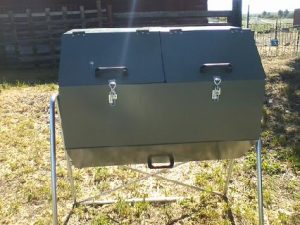
Tumbling bin system
Some gardeners recommend sprinkling a thin layer of soil in between layers, to provide a helpful environment for the microbes. You’ll want to locate your pile in full sun or partial shade.
Now that you know the basics, you probably can’t wait to start making your own compost! Just remember there are some “ingredients” that should never go into the compost pile:Â bones, meat, dairy, cooking oils, magazine paper or plastic. And of course, no chemicals or feces.
When your compost has a warm brown color, crumbly texture, and a pleasant earthy odor, you’ll know it’s ready. So what do you do with it? You can use it like you would any fertilizer or potting soil. The structure of compost makes it the perfect environment for plant roots, providing good air and water space needed for strong root growth. It also contains beneficial microorganisms and helps to balance the pH of your soil.
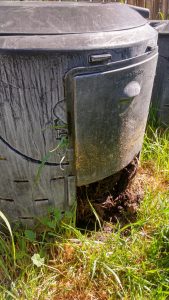
Compost is Ready!
Compost can also be used as a mulch around your plants to hold in moisture. Try it as a top dressing on your yard too! Just rake an inch or so of compost into your grass and you’ll soon have the healthiest lawn in town! For a liquid fertilizer or “compost tea”, steep a shovel-full of compost in a 5-gallon bucket of water for a few days. Then pour it on your plants and flowers.
Creating your own compost from house and garden waste is so rewarding! When you have your first pile of “black gold” ready to use, we know you’ll be thrilled, and your garden will thank you!
Please visit our website for more great tips along with our Heirloom and Organic seeds!
Copyright 2018 Everwilde Farms

